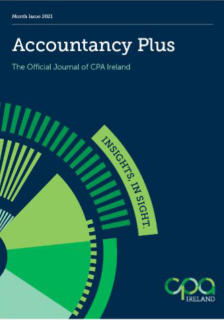
Charlemont Capital Solutions
Corporate Restructuring & Insolvency Solutions
Experience is the key to our success!

Welcome
to
Charlemont
Capital
Solutions
Limited,
where
we
provide
professional
corporate recovery, restructuring and insolvency solutions.
We
specialise
in
providing
timely,
relevant
and
cost
effective
advice
to
executive
managers,
director,
shareholders
and
other
stakeholders
of
financially
distressed
companies.
Whether
you
need
to
effect
a
company
rescue,
creditors’
or
members’
voluntary
liquidation,
receivership,
examinership,
merger
or
capital
reduction,
we
have
the
experience
and
expertise
you
require
at
a
price
your
company
can
afford.
I
f
you
would
like
to
arrange
a
no
obligation
consultation,
please
contact
us
via
email
at
info@charlemontcapital.com
or by telephone on +353 1 254 4664.
We Are Charlemont Capital Solutions

Our Services
Charlemont Capital Sornational Accountants
for the conduct of
20


Company Rescue
The
Small
Company
Administrative
Rescue
Process
offers
a
solution
to
financially
distressed
companies
which
allows
them
to
continue trading and avoid liquidation.
Who Should Consider a Company Rescue?
•
Companies
which
are
unable
to
pay
their
debts
as
they
fall
due
as
a
result
of
being
burdened
with
an
unstainable
level of debt.
•
Companies
who
are
under
pressure
from
Revenue,
lenders
and
other
creditors.
•
Companies
with
onerous
contracts
such as leases.
•
Companies
who
have
a
fundementally
sound
business
model
and
have
a
reasonable
prospect
of
survival
if
the
process i
s ultimately successful.
If
successful,
utimately
the
Small
Company
Administrative
Rescue
Process
will
allow
a
company
to
emerge
within
70
days
with
a
restructured
and
sustainable
level
of
debt
and viable future business.

Home | Our Story | Our Services | Legal | Contact Us
Copyright © 2022 Charlemont Capital Solutions Ltd
Liquidations
Irish
incorporated
companies
can
be
voluntarily
liquidated
and
dissolved
by
way
of
either
a
Members’
or
a
Creditors’
Voluntary Liquidation process.
Who Should Consider Liquidation?
•
Companies
which
have
become
insolvent
and
are
unable
to
pay
their
debts as they fall due.
•
Companies
which
have
ceased
to
trade
who
wish
to
realise
their
assets
and
distribute to shareholders.
•
Companies
that
have
reached
the
end
of
their
life
and
the
shareholders
are
seeking a dissolution of the company.
•
Companies
within
a
group
which
are
seeking
to
restructure
their
operations
and
transfer
assets
within
the
group
in
a tax efficient manner.
Charlemont
Capital
Solutions
can
manage
the
entire
liquidation
process
in
a
smooth
and
inexpensive
way
ensuring
an
optimum
return
to
stakeholders
in
the
shortest
possible time frame.
Capital Reductions
Private
Irish
incorporated
companies
can
now
effect
a
Capital
Reduction
without
the
requirement
to
obtain
approval
from
the
High Court.
Who Should Consider a Capital Reduction?
•
Companies
that
wish
to
return
excess
capital
to
shareholders
by
way
of
a
capital distribution.
•
Companies
that
wish
to
extinguish
an
individual
class
of
share
or
reduce
the
unpaid liability on the company’s shares.
•
Companies
that
are
seeking
to
cancel
share
capital
no
longer
represented
by
assets.
•
Companies
seeking
to
increase
the
reserves
available
for
distribution
to
facilitate
the
payment
of
future
dividends to shareholders.
Charlemont
Capital
Solutions
can
manage
the
entire
capital
reduction
process
in
ensuring
an
optimum
outcome
for
the
company
and
its
shareholders
in
the
shortest possible timeframe.


Our Story
At
Charlemont
Capital
Solutions,
our
experience
and
commitment
to
excellence
is
the
key
to
our
success
and
has
quickly
earned
us
a
reputation
as
a
leader
in
the
field
of
corporate restructuring and insolvency.
Our
goal
is
simple:
to
create
value
for
our
clients
and
at
the
same
time
provide
a
courteous, expedient and professional service of the highest calibre.
We
appreciate
that
one
solution
does
not
fit
every
client
and
we
strive
to
provide
the
type of innovative bespoke solutions that you would expect from a leader in the field.
Our
company
is
always
evolving
as
the
requirements
of
our
clients
change
and
new
opportunties emerge.

Our
independent
professional
team
has
extensive
industry
experience
in
the
areas
of
Asset
Management,
Corporate
Restructuring & Insolvency, Banking & Finance, Risk Management, Taxation and Fund Structuring.
In
2021
Charlemont
Capital
Solutions
were
named
as
Restructuring
Solutions
Experts
of
the
Year
2021-
Republic
of
Ireland at the Acquisitions International World Finance Awards.
Charlemont
Capital
Solutions
was
founded
in
2015
by
David
Russell.
Prior
to
founding
Charlemont
Capital
Solutions
David
was
a
Director
of
Harcourt
Life
Assurance
Company
DAC
with
responsibility
for
the
Property
Management
&
Investment Division.
Prior
to
this
he
held
a
number
of
senior
Accounting
and
Taxation
roles
in
Banking,
Industry,
Accountancy
Practice
and
the
Public Sector where he accumulated over 25 years experience.
David
is
regulated
by
the
Association
of
International
Accountants
to
conduct
corporate
insolvency
business
in
the
Republic of Ireland under the Companies Act 2014.
David
is
a
Certified
Public
Accountant
and
a
Chartered
Tax
Advisor,
he
holds
a
BSc
in
Accounting
&
Law
from
the
University
of
London
(London
School
of
Economics
&
Political
Science)
and
an
MSc
in
Financial
Services
from
University
College Dublin.

Home | Our Story | Our Services | Legal | Contact Us
Copyright © 2022 Charlemont Capital Solutions Limited


Our Services




Home | Our Story | Our Services | Legal | Contact Us
Copyright © 2022 Charlemont Capital Solutions Limited
Below is an overview of the services Charlemont Capital Solutions Ltd can provide.
At Charlemont Capital Solutions Ltd acquiring expert financial knowledge has been the key to building our success.
We aim to provide all our clients with the same convenient, expert service that has made us one of the leaders in the field
of cororate restructuring & insolvency.
If at anytime, while you are browsing through our services section, you have any questions related to any of our services
or you would like to arrange a no obligation consultation then please telephone us on +353 1 254 4664 or email us at
info@charlemontcapital.com.











Examinerships
The
Examinership
process
offers
an
alternative
to
a
Creditors’
Voluntary
Liquidation
for
companies
with
a
strong
underlying
business
but
which
are
considered
insolvent
as
a
result
of
being
burdened
by
an
unsustanble
level
of
debt and therefore unable to pay their debts as they fall due.
The
aim
of
the
process
is
to
facilitate
a
structured
settlement
with
the
creditors
of
a
company
thus
avoiding
a
liquidation
and
allowing
the
company
to continue trading.
Under
the
Examinership
process
an
independent
person
(the
Examiner)
is
appointed
to
a
company
on
application
to
the
Circuit
Court
or
the
High
Court.
The
company
must
demonstrate
that
it
‘a
reasonable
prospect
of
survival’ provided that the Examinership process is successful.

The
appointment
of
the
Examiner
puts
the
company
under
the
protection
of
the
court
for
a
period
of
up
to
100
days
and
prevents
any
lender
or
other
creditor
from
taking
action
to
wind
up
the
company
or
appoint
a
receiver
for
the
duration
of
the
examinership
process
without
the
consent
of
the
Examiner.
Shareholders
and
directors
maintain
control
and
the
company is permitted to continue trading.
In
circumstances
where
a
shareholder
or
director
has
provided
a
personal
guarantee
to
a
company’s
creditors
then
no
proceedings
may
be
commenced
against
that
shareholder
or
directors
on
foot
of
the
guarantee
during
the
period
of
the
examinership.
On
appoinment
the
Examiner
will
undertake
a
full
review
of
the
financial
affairs
of
the
company
and
within
70
days
of
his
or her appointment prepare a Scheme of Arrangement for approval by the company’s creditors.
The
Scheme
of
Arrangement
sets
out
the
basis
of
the
proposed
compromise
with
the
creditors
of
the
company,
the
terms
of which may provide for:
•
A
write
down
in
the
level
of
the
company’s
debt
(secured
debts
may
be
written
down
to
the
value
of
the
underlying
secured asset with the consent of the secured creditor),
•
An extension to the term over which the company’s debts are repayable,
•
The termination or renegotiation of any onerous contracts such lease agreements or other contractual ageeements.
Once
completed
the
compromise
proposal
is
sent
out
to
the
company’s
creditors
in
the
form
of
a
Scheme
of
Arrangement
together
with
a
notice
of
a
creditors’
meeting.
In
order
for
the
Scheme
of
Arrangement
to
be
presented
to
the
Court
for
approval it must receive the majority approval (in value) of at least
one
class of creditor.
Once
the
proposal
is
presented
to
the
Court,
the
Court
shall
consider
the
views
of
any
creditor
or
shareholder
of
the
company,
who
may
object
to
the
proposal
on
the
grounds
that
they
feel
their
interests
will
be
prejudiced
as
a
result
of
the
Scheme of Arrangement becoming effective. The Court will then confirm, amend or reject the Scheme of Arrangement.
If
confirmed
the
Scheme
of
Arrangement
will
become
binding
on
all
creditors
of
the
company,
regardless
of
whether
or
not
they
consented
to
it.
A
successful
examinership
process
allows
a
previously
insolvent
company
to
emerge
inside
100
days with a sustainable level of debt and a viable business future.
Charlemont
Capital
Solutions
can
advise
managers,
director,
shareholders
and
other
stakeholders
of
financially
distressed
companies
on
all
aspects
of
the
examinership
process,
David
Russell
of
Charlemont
Capital
Solutions
Ltd
is
able
to
accept
the appointment as an Examiner under Section 509 of the Companies Act 2014.

Home | Our Story | Our Services | Legal | Contact Us
Copyright © 2022 Charlemont Capital Solutions Limited



Small Company Administrative Rescue Process
The
Small
Company
Administrative
Rescue
Process
is
a
stand-alone
rescue
framework
for
small
&
micro
companies,
which
represent
98%
of
the
companies in Ireland.
The
process
similar
to
Examinership
offers
an
alternative
to
a
Creditors’
Voluntary
Liquidation
for
companies
with
a
strong
underlying
business
but
which
are
considered
insolvent
as
a
result
of
being
burdened
by
an
unsustainable level of debt.
The
aim
of
the
process
is
to
facilitate
a
structured
settlement
with
the
creditors
of
a
company
thus
avoiding
a
liquidation
and
allowing
the
company
to continue trading.

The Process
Under the Small Company Administrative Rescue Process the following steps are required to be undertaken: • The process is commenced by the passing of resolution of the directors. • An insolvency practitioner (the ‘Process Advisor’) is appointed by the company to begin engagement with creditors and prepare a rescue plan. The rescue plan must satisfy the ‘best interest of creditors’ test and provide each creditor with a better outcome than a liquidation (no creditor may be unfairly prejudiced by the plan). • Creditors are invited to vote on the rescue plan by day 42 of the Process Advisor’s appointment. • Rescue plans are approved without the requirement for Court approval provided that 60% in number representing the majority in value of claims of an impaired class of creditors vote in favour of the proposal and no creditor raises an objection to the plan within the 21-day cooling off period which follows the vote. • Where an objection to the rescue plan is raised by a creditor, there will be an automatic obligation on the company to seek the Court’s approval. The Rescue Plan sets out the basis of the proposed compromise with the creditors of the company, the terms of which may provide for: • A write down in the level of the company’s debt, • An extension to the term over which the company’s debts are repayable, • The termination or renegotiation of any onerous contracts such lease agreements or other contractual agreements. Once completed the compromise proposal will be sent out to the company’s creditors with a notice of a creditors’ meeting. If confirmed the Rescue Plan will become binding on all creditors of the company, regardless of whether or not they consented to it. A successful rescue process will allow a previously insolvent company to emerge inside 70 days with a sustainable level of debt and a viable business future. Qualifying Conditions In order to avail new process a company must meet any two the qualifying conditions for a small company in 280A of the Companies Act 2014 which are: 1 . turnover of the company does not exceed €12 million 2 . the balance sheet total of the company does not exceed €6 million 3 . the average number of employees of the company does not exceed 50. Charlemont Capital Solutions can advise directors and shareholders on the best strategy to adopt, provide assistance with the entire statutory process including the preparation and drafting of the Rescue Plan, Statements of Estimated Outcomes, issuance of the proposals to shareholders & creditors, organising the required statutory meetings and where necessary arranging for the applications to be made to the Court. David Russell of Charlemont Capital Solutions Ltd will be able to accept the appointment as the supervising Insolvency Practitioner under the Companies Act 2014. Our fees are chargeable on a fixed fee or time basis. Please contact us to arrange a no obligation consultation.
Home | Our Story | Our Services | Legal | Conact Us
Copyright © 2022 Charlemont Capital Solutions Limited


Liquidations
Liquidation
is
the
process
of
bringing
a
company
to
an
end
by
realising
and
distributing
its
assets
to
lenders,
other
creditors
or
shareholders.
At
the
end
of the process the company is usually dissolved and ceases to exist.
The
winding
of
a
company
by
way
of
liquidation
under
Irish
Company
Law
may
be
effected
by
either
a
Members’
Voluntary
Liquidation
(where
the
company
is
solvent),
Creditors’
Voluntary
Liquidation
(where
the
company
is
insolvent) or a Compulsory Liquidation process.
Under
the
process
a
person
independent
of
the
company
(the
Liquidator)
is
appointed
to
identify
and
take
control
of
the
company’s
assets,
realise
and
distribute
those
assets
according
to
the
priority
of
claims
set
out
in
the
Companies Act 2014.

Members’ Voluntary Liquidations
Members’
Voluntary
Liquidation
(MVL)
is
an
efficient
way
of
effecting
the
dissolution
of
a
solvent
company
which
has
ceased to trade.
The
Liquidator
is
appointed
by
the
shareholders
of
the
company
to
enable
the
realisation
and
distribution
of
a
company’s
assets to the shareholders in a more tax efficient manner.
Charlemont
Capital
Solutions
can
advise
directors
and
shareholders
on
the
best
strategy
to
adopt,
provide
assistance
with
the
entire
statutory
process
including
the
preparation
of
the
statement
of
affairs,
drafting
of
resolutions,
declarations
of
solvency,
conduct
at
board
&
extraordinary
general
meetings
and
make
all
Companies
Registration
Office
filings.
David Russell of Charlemont Capital Solutions Ltd can undertake the appointment as the members’ voluntary liquidator.
Creditors’ Voluntary Liquidations
A
Creditors’
Voluntary
Liquidation
is
usually
instigated
by
the
directors
of
the
company
where
they
determine
that
the
company is insolvent and can no longer continue to trade.
Once
the
directors
have
reached
this
conclusion
they
are
obligated
by
the
Companies
Act
2014
to
resolve
to
convene
meetings
of
the
shareholders
and
the
creditors
to
consider
the
financial
position
of
the
company
with
a
view
to
the
appointment of a liquidator.
Once
appointed
the
liquidator
will
realise
the
company’s
assets
and
distribute
the
proceeds
to
the
company’s
creditors
and where there is a surplus to the shareholders.
The liquidator’s fees are typically paid from proceeds of the realisation of the company’s assets.
Charlemont
Capital
Solutions
can
advise
executive
managers,
director,
shareholders
and
other
stakeholders
on
the
entire
liquidation process.
David Russell of Charlemont Capital Solutions Ltd can undertake the appointment as the creditors’ voluntary liquidator.
Compulsory (Court) Liquidations
A
compulsory
liquidation
is
instigated
by
a
shareholder,
a
creditor
of
the
company
or
the
company
itself
by
way
of
a
petition to wind up the company presented to the High Court.
The
principal
reason
for
a
compulsory
liquidation
arises
from
the
company’s
inability
to
meet
its
financial
obligations,
however
there
are
circumstances
in
which
a
court
may
exercise
its
jurisdiction
in
ordering
that
a
company
be
wound
up
including where the Court determines that it is just and equitable.
Charlemont
Capital
Solutions
can
advise
shareholders,
directors
and
creditors
on
the
entire
compulsory
liquidation
process.
Our fees are chargeable on a fixed fee or time basis. Please contact us to arrange a no obligation consultation.

Home | Our Story | Our Services | Legal | Contact Us
Copyright © 2022 Charlemont Capital Solutions Limited


Receiverships
Receivership
is
a
process
where
a
secured
creditor
(the
Chargeholder),
normally
a
financial
institution,
appoints
a
Receiver
to
recover
monies
due
on
foot of security (mortgage / debenture) held over the asset(s) of the company.
The
charges
on
a
company’s
asset(s)
may
be
charged
as
Fixed
(over
specific
assets
or
class
of
assets
for
example
freehold
property)
or
Floating
(over
non-
constant
assets
which
change
in
quantity
and
value
periodically
for
example
trading stock).
Typically
assets
subject
to
a
fixed
charge
cannot
be
sold
without
the
consent
of
the
chargeholder,
where
as
assets
subject
to
a
floating
charge
may
be
traded,
sold,
and/or
disposed
of
over
the
life
span
of
the
business
operations
without the consent of the chargeholder.

The
role
of
the
receiver
is
to
take
possession
of
the
secured
asset(s)
and
realise
the
value
of
these
assets
to
repay
the
secured lender.
In
a
default
scenario
a
floating
charge
will
‘crystalize’
immediately
becoming
a
fixed
charge
and
thereby
fixing
upon
the
asset
or
assets.
This
removes
the
ability
of
the
borrower
to
carry
on
the
normal
course
of
business
as
the
newly
crystallised
charge
prevents
the
assets
from
being
traded,
sold,
and/or
disposed
of
over
the
life
span
of
the
business
operations without the consent of the chargeholder.
Fixed Charge Receivership
A Fixed Charge receiver is typically appointed to a single asset or class of assets.
Under
Irish
Law
the
Receiver
is
deemed
to
act
as
the
agent
of
the
borrower
and
accordingly
the
actions
of
the
receiver
are
deemed
to
be
the
actions
of
the
borrower.
The
borrower
will
remain
the
beneficial
owner
of
the
secured
asset
until
it
has
been sold by the Receiver.
The
Receiver
obtains
sole
legal
control
over
the
asset(s)
and
any
monies
arising
from
the
secured
asset(s)
in
the
form
of
rental income or from a sale will be applied as follows:
1
.
Taxes, rates and other expenses of the secured asset
2
.
Annual payments and interest arising on a higher priority mortgage / debt
3
.
Commissions, rents, insurance and any other necessary expenses
4
.
Interest on the secured debt
5
.
Repayment of the outstanding secured debts in order of priority.
6
.
Any residual monies will be returned to the owner.
Trading Receiverships
Trading
Receiverships
typically
arise
where
the
Chargeholder
appoints
a
Receiver
on
foot
of
a
floating
charge
over
the
assets of a company with the power to carry on the business of the company.
A
receivership
can
often
prove
to
be
a
challenging
process.
Our
knowledge
and
experience
makes
us
ideally
placed
to
achieve the optimum outcome for stakeholders.
Charlemont
Capital
Solutions
can
advise
shareholders,
directors
and
lenders
on
the
entire
process
and
we
offer
the
following range of services:
* Security reviews on behalf of borrowers and lenders
* Assessments / Strategy Reports on behalf of lenders with a view to obtaining the optimum return on the asset
*
David
Russell
of
Charlemont
Capital
Solutions
Ltd
is
able
to
accept
the
appointment
as
Receiver
under
Section
437
of
the Companies Act 2014 on foot of a fixed or floating charge.
Our fees are chargeable on a fixed fee or time basis. Please contact us to arrange a no obligation consultation.

Home | Our Story | Our Services | Legal | Contact Us
Copyright © 2022 Charlemont Capital Solutions Limited


Schemes of Arrangement
A
Scheme
of
Arrangement
is
a
process
under
which
a
financially
distressed
company can reach a legally binding structured settlement with its creditors.
A
Scheme
of
Arrangement
can
be
proposed
by
either
the
directors
of
a
Liquidator of a company.
Accordingly
a
Scheme
of
Arrangement
can
be
used
to
restructure
wind
up
a
company without the requirement to appoint an Examiner or a Liquidator.
Unlike
Examinership
it
is
not
necessary
for
a
company
to
show
that
it
has
‘a
reasonable
prospect
of
survival’
or
that
it
will
reamain
viable
after
the
Scheme of Arrangement becomes effective.

A company may continue to trade during the Scheme of Arrangement process
and after it has been implemented.
Whilst
there
is
no
automatic
protection
from
creditors
it
is
possible
that
in
advance
of
commencing
the
process
to
make
an
application
to
the
High
Court
for
a
moratorium
which
will
prevent
the
company’s
creditors
from
taking
any
action
against it or its assets whilst the process is onging.
The Scheme of Arrangement involves four principal stages:
•
A
compromise
proposal
(the
Scheme
of
Arrangement)
is
prepared
by
the
company
and
issued
to
creditors
and
shareholders
together
with
a
notice
of
a
meeting
of
creditors.
The
Scheme
of
Arranagment
must
offer
creditors
a
better outcome than in a liquidation scenario.
•
In
order
for
the
Scheme
of
Arrangement
to
be
presented
to
the
High
Court,
it
must
first
be
approved
by
a
‘Special
Majority’ of the company’s creditors (75% in value of those present and voting at the meeting).
•
Notice
of
the
passing
of
the
Special
Resolution
at
the
scheme
meetings
and
that
company
intends
to
make
an
application
to
the
High
Court
to
sanction
the
Scheme
of
Arrangement
must
be
published
in
two
daily
national
newspapers.
•
The
Scheme
may
then
be
presented
to
the
High
Court,
the
court
will
consider
whether
to
exercise
its
descretion
to
approve the Scheme of Arrangement.
Once
approved
by
the
High
Court
the
Scheme
of
Arrangement
will
become
binding
on
all
creditors
of
the
company,
regardless of whether or not they consented to it.
Charlemont
Capital
Solutions
can
advise
directors
and
shareholders
on
the
best
strategy
to
adopt,
provide
assistance
with
the
entire
statutory
process
including
the
preparation
and
drafing
of
the
Scheme
of
Arrangement,
Statements
of
Estimated
Outcomes,
issuance
of
the
proposals
to
shareholders
&
creditors,
organising
the
Scheme
of
Arrangement
meetings and arranging for the necessary applications to be made to the High Court.
Our fees are chargeable on a fixed fee or time basis. Please contact us to arrange a no obligation consultation.

Home | Our Story | Our Services | Legal | Contact Us
Copyright © 2022 Charlemont Capital Solutions Limited


Mergers
A merger is a legal consolidation of two or more entities into one single entity.
Mergers
offer
an
efficient
way
of
consolidating
companies
or
assets
and
at
the
same
time
potentially
stimulating
growth,
gaining
competitive
advantage
or expanding market share.
Since
the
enactment
of
the
Companies
Act
2014
it
is
now
possible
to
merge
two
or
more
private
limited
companies
incorporated
in
the
Republic
of
Ireland without High Court approval.
There are three routes under which domestic companies may be merged by:

Merger
by
Acquisition
-
Where
a
company,
without
going
into
liquidation,
is
dissolved
and
its
assets
and
liabilities
are
transferred to a company in exchange for shares in the acquiring company with/without any cash payment.
Merger
by
Absorption
-
Where
a
company,
without
going
into
liquidation,
is
dissolved
and
its
assets
and
liabilities
are
transferred to a company that is the holder of all of the shares representing the capital of the dissolving company.
Merger
by
Formation
–
Where
two
or
more
companies,
without
going
into
liquidation,
is/are
dissolved
and
the
assets/liabilities
are
transferred
to
a
company
in
exchange
for
shares
in
the
new
company
with
or
without
any
cash
payment.
The Companies Act 2014 facilitates the merger of companies in the Republic of Ireland by two main processes:
The Summary Approval Procedure
The
Summary
Approval
Procedure
allows
a
merger
to
take
place
between
two
domestic
companies
incorporated
in
the
Republic of Ireland, at least one of which must be a private company limited by shares (LTD) without High Court approval.
The steps which must be undertaken are as follows:
•
The directors of the companies involved agree and sign the common draft terms of merger (CDTM)
•
The directors of the merging companies prepare an explanatory report (Directors’ Report)
•
The directors of the merging companies make a declaration of solvency (Directors’ Declaration)
•
The
appointment
of
an
independent
expert
to
prepare
a
report
for
the
members
of
the
merging
companies
on
the
common draft terms of the merger (Expert’s Report)
•
The
merging
companies
making
certain
documents
available
for
inspection
at
its
registered
office
(3
years
audited
financial
statements,
the
CDTM,
the
merger
financial
statements,
Directors’
Report
and
Expert’s
Report)
for
a
period
of 30 days.
•
The
merger
becomes
effective
on
the
passing
of
a
unamimous
Special
Resolution,
passed
not
less
than
30
days
before
the signing of the Directors Declaration,
The High Court Process
A
public
limited
company
or
subsidaries
of
a
public
limited
company
may
only
merge
with
the
approval
of
the
High
Court,
under
this
route
the
merging
companies
are
required
to
publicly
advertise
notice
of
the
proposed
merger,
publish
the
Common Draft Terms of Merger and seek a High Court Confirming Order following the passing of the Special Resolution.
As
an
alternative
to
the
Summary
Approval
Procedure
private
companies
may
merge
via
the
High
Court
process.
There
are
a
number
of
reasons
why
a
private
company
may
seek
to
merge
via
this
route,
the
principal
reason
being
where
they
are unable to pass a unanimous shareholders' resolution.
Once
a
merger
becomes
effetive
the
assets
and
liabilities
of
the
target
companies
are
transferred
to
the
successor
company,
the
successor
company
is
substituted
for
the
target
company
or
companies
into
all
pending
legal
proceedings
involving
it
or
them;
and
all
contracts,
agreements
or
instruments
that
the
target
company
is
a
party
to
become
contracts,
agreements
or
instruments
to
which
the
successor
company
is
a
party
to,
by
operation
of
law.
The
target
company
or
companies are then dissolved by merger without going into liquidation.
Charlemont
Capital
Solutions
can
advise
directors
and
shareholders
on
the
best
strategy
to
adopt,
provide
assistance
with
the
entire
statutory
process
including
the
preparation
and
drafing
of
the
Common
Draft
Terms
of
Merger,
Directors’
Declarations, Directors’ Explanatory Reports, Special Resolutions and all Companies Registration Office filings.
Our fees are chargeable on a fixed fee or time basis. Please contact us to arrange a no obligation consultation.

Home | Our Story | Our Services | Legal | Contact Us
Copyright © 2022 Charlemont Capital Solutions Limited


Divisions
A
division
takes
place
where
two
or
more
companies
(one
or
more
of
which
but
not
all
may
be
a
new
company)
acquire
the
assets
&
liabilities
of
a
company
that
is
being
dissolved
without
entering
liquidation
in
exchange
for
the
issue
of
shares
(with
or
without
a
cash
payment)
in
one
or
more
of
the
companies acquiring the assets & liabilities.
Divisions
offer
an
efficient
way
of
restructuring
companies,
groups
or
assets
in a tax efficient maner.
There are two routes under which domestic companies may be divided by:

Division
by
Acquisition
-
Where
two
or
more
companies
acquire
the
assets
and
liabilities
of
a
company
that
is
being
dissolved
without
entering
liquidation
in
exchange
for
issue
of
shares
in
one
or
more
of
the
companies
acquiring
the
assets
& liabilities.
Division
by
Formation
-
Where
two
or
more
new
companies
are
formed
in
order
to
acquire
the
assets
and
liabilities
of
a
company
that
is
being
dissolved
without
entering
liquidation,
and
that
this
is
in
exchange
for
issue
of
shares
in
the
companies.
The High Court Process
The
Summary
Approval
Procedure
is
not
available
for
Divisions
and
the
consent
of
the
High
Court
is
required
by
both
public and private limited companies.
The steps which must be undertaken are as follows:
•
The directors of the companies involved agree and sign the common draft terms of division (CDTV)
•
The
Common
Draft
Terms
of
Division
are
submitted
to
the
Companies
Registration
Office
and
notice
is
published
in
the CRO Gazette.
•
An advertisement placed in one national newspaper at least 30 days prior to meeting of the shareholders.
•
The directors of the companies prepare an explanatory report (Directors’ Report)
•
The
appointment
of
an
independent
expert
to
prepare
a
report
for
the
members
of
the
companies
on
the
Common
Draft Terms of the Division (Expert’s Report)
•
The
companies
making
certain
documents
available
for
inspection
at
its
registered
office
(3
years
audited
financial
statements,
the
Common
Draft
Terms
of
Division,
the
division
financial
statements,
Directors’
Report
and
Expert’s
Report) for a period of 30 days.
•
The Special Resolution is passed not less than 30 days before the publication of the relevant notices.
•
The High Court issues a confirming order.
•
A second CRO Gazette notice published by the Registrar on receipt of court order.
Once
a
division
becomes
effective
the
successor
company(s)
is
/
are
substituted
for
the
target
company
or
companies
into
all
pending
legal
proceedings
involving
it
or
them;
and
all
contracts,
agreements
or
instruments
that
the
transferor
company
is
a
party
to
become
contracts,
agreements
or
instruments
to
which
the
successor
company(s)
is
are
a
party
to,
by operation of law and the transferor company is dissolved without entering liquidation.
Charlemont
Capital
Solutions
can
advise
directors
and
shareholders
on
the
best
strategy
to
adopt,
provide
assistance
with
the
entire
statutory
process
including
the
preparation
and
drafing
of
the
Common
Draft
Terms
of
Division,
Directors’
Declarations, Directors’ Explanatory Reports, Special Resolutions and all Companies Registration Office filings.
Our fees are chargeable on a fixed fee or time basis. Please contact us to arrange a no obligation consultation.

Home | Our Story | Our Services | Legal | Contact Us
Copyright © 2022 Charlemont Capital Solutions Limited




Home | Our Story | Our Services | Legal | Contact Us
Copyright © 2022 Charlemont Capital Solutions Limited


Capital Reductions
Irish
incorporated
companies
may
reduce
their
capital
in
any
way
that
they
consider expendient, a company may:
•
extinguish
or
reduce
the
liability
on
any
of
its
shares
in
respect
of
share
capital not paid up;
•
with
or
without
extinguishing
or
reducing
liability
on
any
of
its
shares,
cancel
any
paid
up
company
capital
which
is
lost
or
unrepresented
by
available assets; or
•
either
with
or
without
extinguishing
or
reducing
liability
on
any
of
its
shares,
pay
off
any
paid
up
company
capital
which
is
in
excess
of
the
wants
of the company.
Capital Reductions can facilitate a company wishing to:
•
reduce
the
deficit
on
distributable
reserves
or
increase
the
reserves
available
for
distribution
to
facilitate
the
payment of future dividends to shareholders
•
return excess capital to shareholders by way of a capital distribution
•
extinguish an individual class or classes of share
•
reduce the unpaid liability on the company’s shares
•
cancel share capital no longer represented by assets
The Companies Act 2014 facilitates the merger of the companies in the Republic of Ireland by two main processes:
The Summary Approval Procedure
Irish
incorporated
Private
Limited
Companies
and
Designated
Activity
Companies,
can
effect
a
Capital
Reduction
by
way
of the Summary Approval Procedure, in the context of Capital Reduction this involves the following steps:
•
The directors of the merging companies make a declaration of solvency.
•
The auditor of the company or person qualified to be the auditor of the company must provide a report which
confirms that the declaration made by the directors is “not unreasonable”;
•
The shareholders must pass a special resolution authorising the Capital Reduction.
The High Court Process
A
Public
Limited
Company
or
a
direct
or
indirect
subsidiary
of
a
Public
Limited
Company
cannot
avail
of
the
Summary
Approval Procedure and must have the Capital Reduction confirmed by the High Court.
Under
this
route
the
company
is
required
publicly
advertise
notice
of
the
proposed
capital
reduction
following
the
passing
of
the
Special
Resolution
and
send
notification
to
any
creditors
resident
outside
of
the
State
before
seeking
a
High
Court
Confirming Order.
The
Confirming
Order
and
the
court
approved
minute,
outlining
the
changes
in
the
capital
of
the
company
must
then
be
filed in the Companies Registration Office within 21 days.
Charlemont
Capital
Solutions
can
advise
shareholders,
directors
and
lenders
on
the
entire
process
inasmooth
and
in
expensive way, ensuring an optimum for the company and its shareholders.
Our fees are chargeable on a fixed fee or time basis. Please contact us to arrange a no obligation consultation.
Voluntary Strike Offs
As
an
alternative
to
placing
a
company
into
Members’
Voluntary
Liquidation
a
company
that
as
ceased
to
trade
or
has
never
traded
may
apply
to
the
Registrar
of
Companies
to
be
struck-off
the
Register
of
Companies
and
dissolved.
In
order
to
avail
of
this
process
the
company
cannot
have
assets
or
liabilities
exceeding €150 and must not be a party to any ongoing or pending litigation.
A
company
that
meets
these
requirements
and
wishes
to
utilise
the
Voluntary
Strike Off process must then undertake the following steps:

•
Resolve
by
Special
Resolution
that
an
application
be
made
to
Registrar
of
Companies
to
be
struck
off
the
register
on
the
grounds
that
it
has
never
carried
on
business
or
has
ceased
to
carry
on
business;
and
that
pending
the
determination of its application to be struck off, the company will not carry on any business or incur any liabilities.
•
Obtain a letter of no objection from the Revenue Commissioners.
•
Place a legal notice in a daily newspaper published and circulated nationwide.
•
File the Strike-off application at the Companies Registration Office.
Charlemont
Capital
Solutions
Limited
can
assist
you
with
the
entire
process
including
the
drafting
of
resolutions,
obtaining
the
letter
of
no
objection
from
the
Revenue
Commissioners,
conduct
at
board
/
extraordinary
general
meetings,
placing the legal notice in a national newspaper and making all Companies Registration Office filings.
Our fees start at just €299+ VAT and disbursements, please contact us for further information.

Home | Our Story | Our Services | Legal | Contact Us
Copyright © 2022 Charlemont Capital Solutions Limited


Press & Media




Home | Our Story | Our Services | Legal | Contact Us
Copyright © 2022 Charlemont Capital Solutions Limited
International Accountant Magazine
July / August 2021





Accountancy Plus Magazine
September 2021
For any press or media inquiries, please contact info@charlemontcapital.com.
Recent Media Coverage
Legal
Terms
By
accessing
this
Site,
you
agree
to
be
bound
by
the
terms
and
conditions
below
(the
"Terms").
If
you
do
not
agree
to
all
of
the
Terms,
please
do
not
use
the
Site.
Charlemont
Capital
Solutions
Ltd
may
from
time
to
time
modify
or
revise
the
Terms
by
updating
this
Web
page.
Your
use
of
our
Site
following
any
such
change
constitutes
your
agreement
to
follow
and
be
bound
by
the
Terms
as
changed.
If
any
change
is
unacceptable
to
you,
your
only
recourse
is
to
terminate
your
use
of the Site.
Content
The
content
provided
on
this
website
is
provided
for
information
purposes
only.
The
content
constitutes
general
information
relating
to
areas
of
Company
Law
in
the
Republic
of
Ireland.
The
content
does
not
constitute
legal
advice
or
other professional advice and you may not rely on the content of this website as such.
Privacy
Charlemont
Capital
Solutions
Ltd
has
a
strict
policy
for
handling
customer
information.
The
information
you
provide
to
us is confidential and protected to the fullest extent possible.
We
will
not
disclose
or
distribute
customer
information
to
third
parties
without
prior
written
consent
by
the
client
unless required to do so by law.
Regulation
David
Russell
of
Charlemont
Capital
Solutions
Limited
is
regulated
by
the
Association
of
International
Accountants
to
conduct corporate insolvency business in the Republic of Ireland under the Companies Act 2014.
The
amount
and
terms
of
professional
indemnity
insurance
required
to
be
held
by
a
liquidator
of
a
company
are
contained
in
the
Companies
Act
2014
(Professional
Indemnity
Insurance)
(Liquidators)
Regulations
2016
(the
‘Regulations’) which were signed into law by the Irish Auditing and Accounting Supervisory Authority.
The
Regulations
specify
a
minimum
level
of
cover
of
€1,500,000
and
related
defence
costs
and
that
insurance
run-off
cover must be maintained for a period of 6 years.
Charlemont
Capital
Solutions
Limited
holds
professional
indemnity
cover
for
our
practice
under
a
policy
of
insurance
with Zurich Insurance Plc.

Home | Our Story | Our Services | Legal | Contact Us
Copyright © 2022 Charlemont Capital Solutions Limited


Contact Us
At Charlemont Capital Solutions Limited, your input is essential to our business. If you have any questions or comments
comments regarding our services or if you would like to arrange a no obligation consultation, please contact us at the
location below:
Charlemont Capital Solutions Limited
6-9 Trinity Street
Dublin 2
D02 EY47
Telephone: +353 1 254 4664
email: info@charlemontcapital.com


Copyright © 2022 Charlemont Capital Solutions Ltd
Home | Our Story | Our Services | Legal | Contact Us













